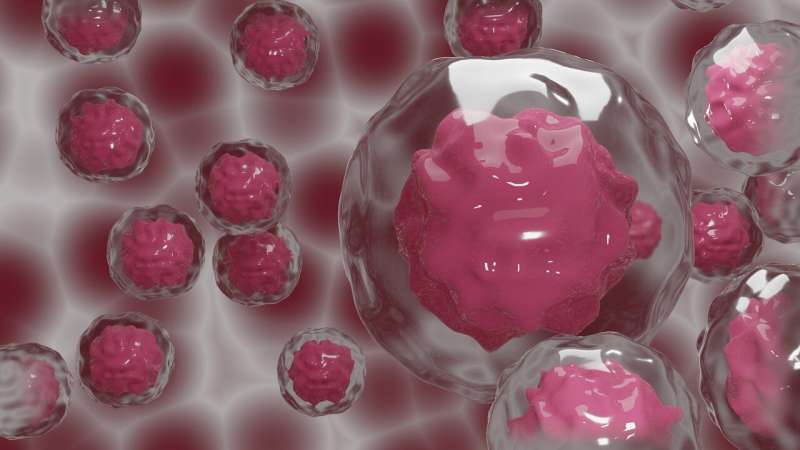A potential new cancer target

The role of transforming growth factor beta (TGF-beta) in cancer progression is still not fully understood due its context-dependent biology.
For a number of years, the laboratory of Sergey Novitskiy, MD, Ph.D., has studied how the nucleoside adenosine, which is essential for many cellular functions, contributes to actions of TGF-beta, including its tumor-driving effects. This is important as small molecule inhibitors of adenosine signaling are currently under consideration for anticancer immunotherapy.
Reporting in the journal Cancer Research, Novitskiy and his colleagues demonstrated that expression of adenosine receptors correlates with collagen production and associates with lower survival in triple negative breast cancer patients.
They discovered that adenosine, which possesses no effects on its own on collagen production, attenuates normal TGF-beta responses in fibroblasts, causing atypical formation of the extracellular matrix, which supports tumor growth and metastasis.
Furthermore, these effects were mediated through A2b and not A2a adenosine receptors, indicating that these receptors may be a valuable target in anticancer therapy.
More information: Georgii Vasiukov et al. Myeloid cell-derived TGF-beta signaling regulates ECM deposition in mammary carcinoma via adenosine-dependent mechanisms, Cancer Research (2020). DOI: 10.1158/0008-5472.CAN-19-3954



















